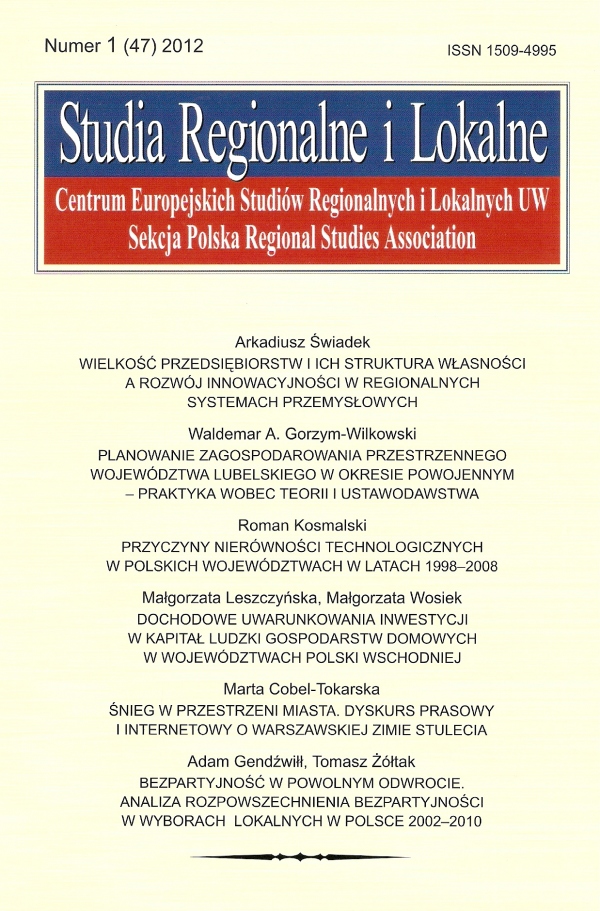Published in
1(47)/2012

- Arkadiusz ŚwiadekSize and ownership structure of enterprises versus development of innovations in the regional industrial systems[more]
- Waldemar A. Gorzym-WilkowskiSpatial planning in the Lublin voivodeship in the post-Second World War period – practice versus theory and legislation[more]
- Roman KosmalskiThe causes of technological ineffectiveness in Polish voivodeships in the years 1998–2008[more]
- Małgorzata Leszczyńska, Małgorzata WosiekIncome-related reasons of households in Eastern Polish voivodeships for investing in human capital[more]
- Marta Cobel-TokarskaSnow in the urban space. Discourse on the 2009/2010 ‘winter of the century’ in Warsaw[more]
- Adam Gendźwiłł, Tomasz ŻółtakNon-partisanship in gradual retreat. An analysis of the prevalence of non-partisanship in local elections in Poland 2002–2010[more]
- Maciej J. NowakStanisław Korenik, Region ekonomiczny w nowych realiach społeczno-gospodarczych, Warszawa, CeDeWu, 194 s. (recenzja)[more]
- Wojciech SońtaSoňa Čapková, et al., Regional Development and Innovation, Ekonomická Univerzity Mateja Bela, 138 s. (recenzja)[more]
- Mariusz ChudakAndrzej Majer, Socjologia i przestrzeń miejska, Warszawa, Wydawnictwo Naukowe PWN, 372 s. (recenzja)[more]


